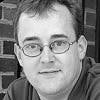Member-only story
Four Books You Need to Read About School Shootings
I saw a bumper sticker the other day that made me pull my car into a McDonald’s parking lot and start a debate. I was alone in the car, but it didn’t matter. Passers-by saw me lecturing no one, dangerously animated, karate-chopping the air for emphasis. Didn’t matter. I was ten minutes late for my appointment. Didn’t matter.
The sticker said, “If guns kill people, then I guess pencils miss spell words, cars drive drunk, and spoons make people fat.”
Leaving aside the “miss spell” solecism, which couldn’t have been intentional because there were no similar puns in the cars and spoons examples, this statement is nonsense.
Can you stop misspellings by removing all pencils? No.
Can you stop traffic accidents by removing alcohol? No.
Can you cure obesity by confiscating spoons? No.
Can you end all gun-related deaths by taking away guns? Yes. 100 percent.
I am not, however, advocating for guns to be taken away. There are benefits to guns. No, what made me rage-debate that bumper sticker was its loose logic, its sloppy facts, its off-the-mark assumptions. These same qualities plague much of the discussion around school shooters.
News about school shooters is inescapable now, but not so long ago, it was much rarer. In fact, “school shooters” was not a common term until the late 1990s, and only in the last few years have they been studied as a specific category of killer.
Here are four books that date from this proto-era. Think of them as setting the stage for our current gun control moment.
Erik Larson, Lethal Passage, 1994

On December 16, 1988, sixteen-year-old Nicholas Elliott walked into his high school, Atlantic Shores Christian School in Virginia Beach, Virginia, with murder on his mind. His target: another student named Jacob Snipes, who had been taunting Nicholas (Jacob was white, Nicholas black). A teacher, Karen Fairley, tried to stop Nicholas; he killed her and kept moving. He wounded another…






